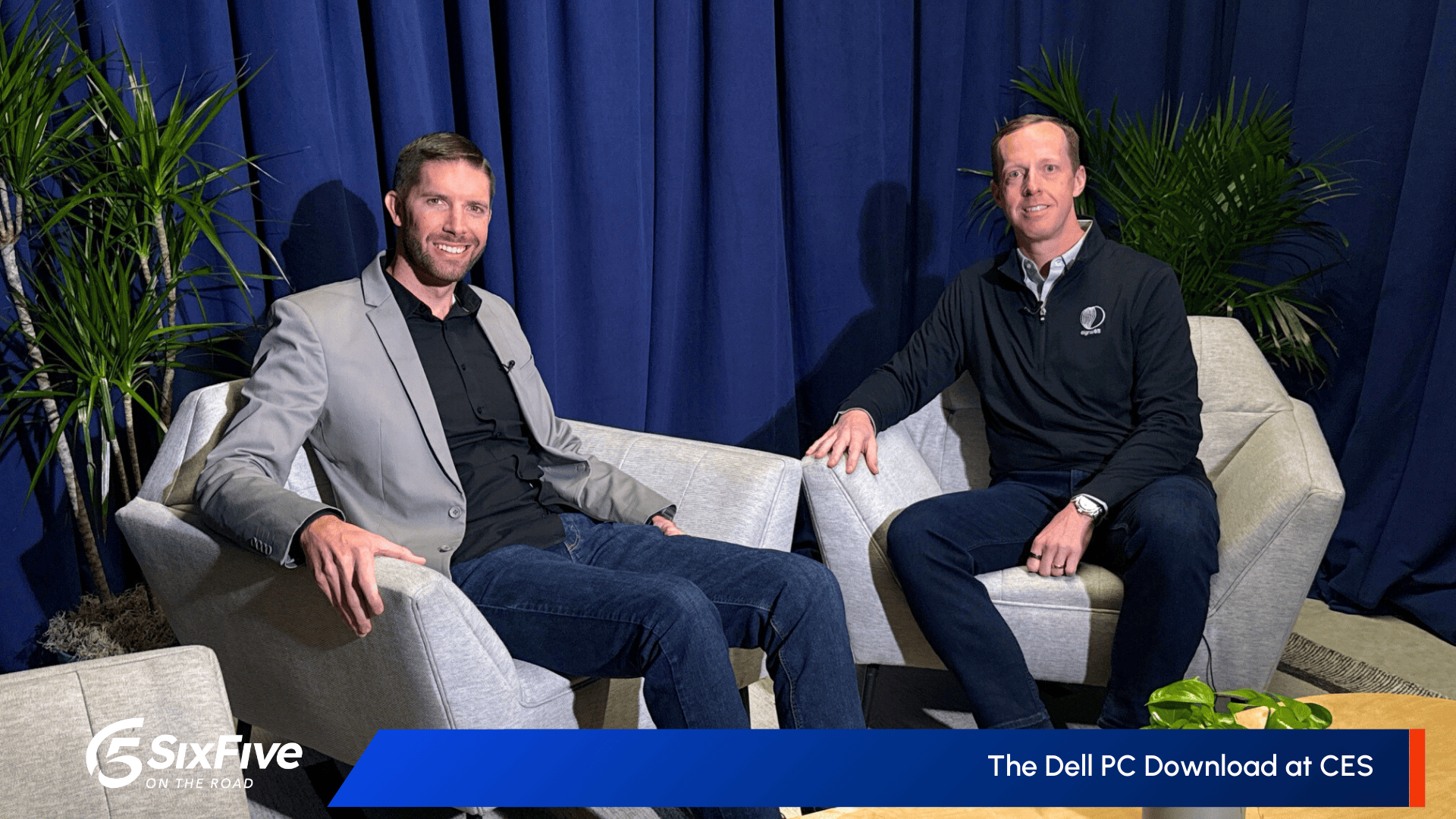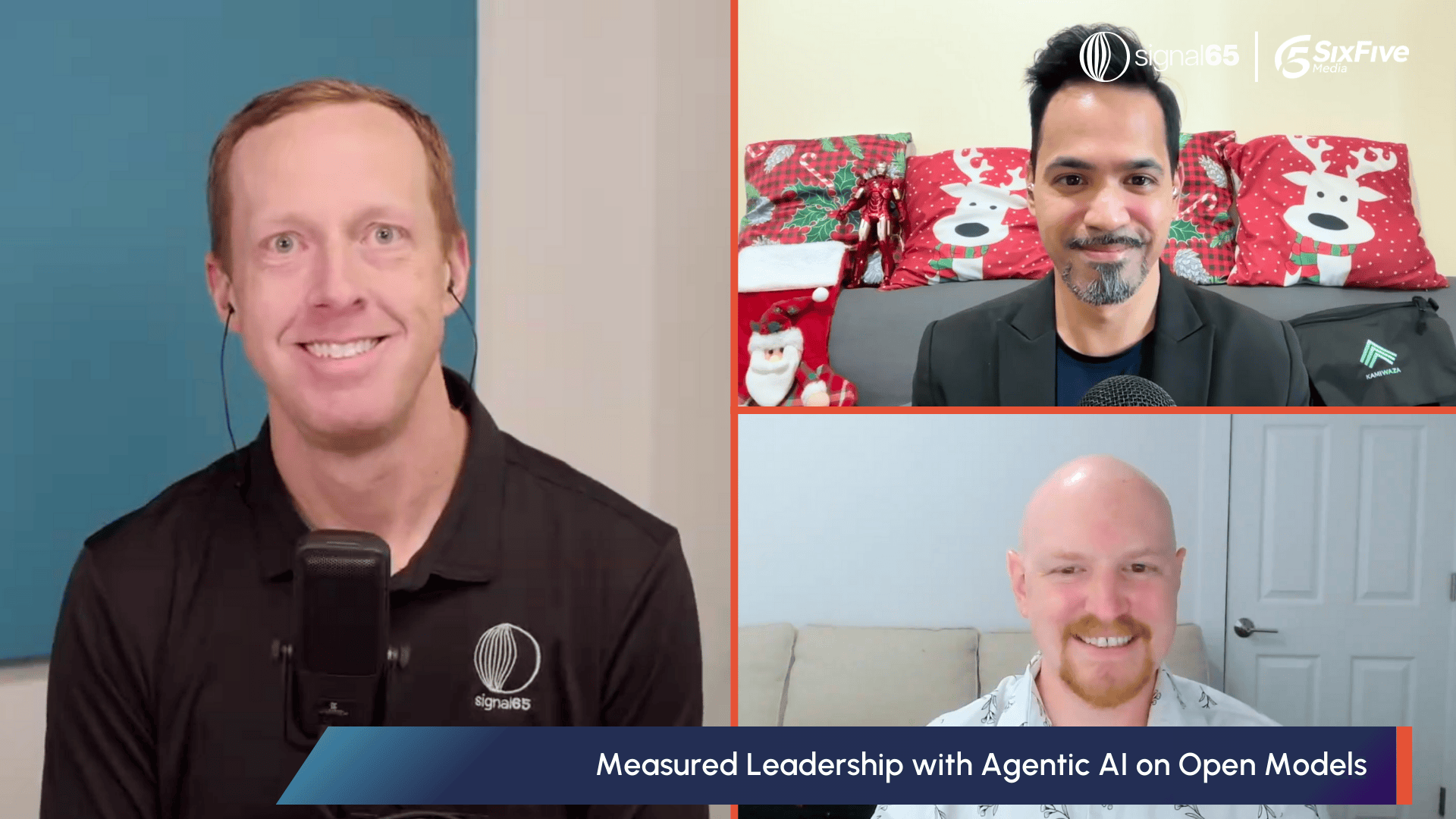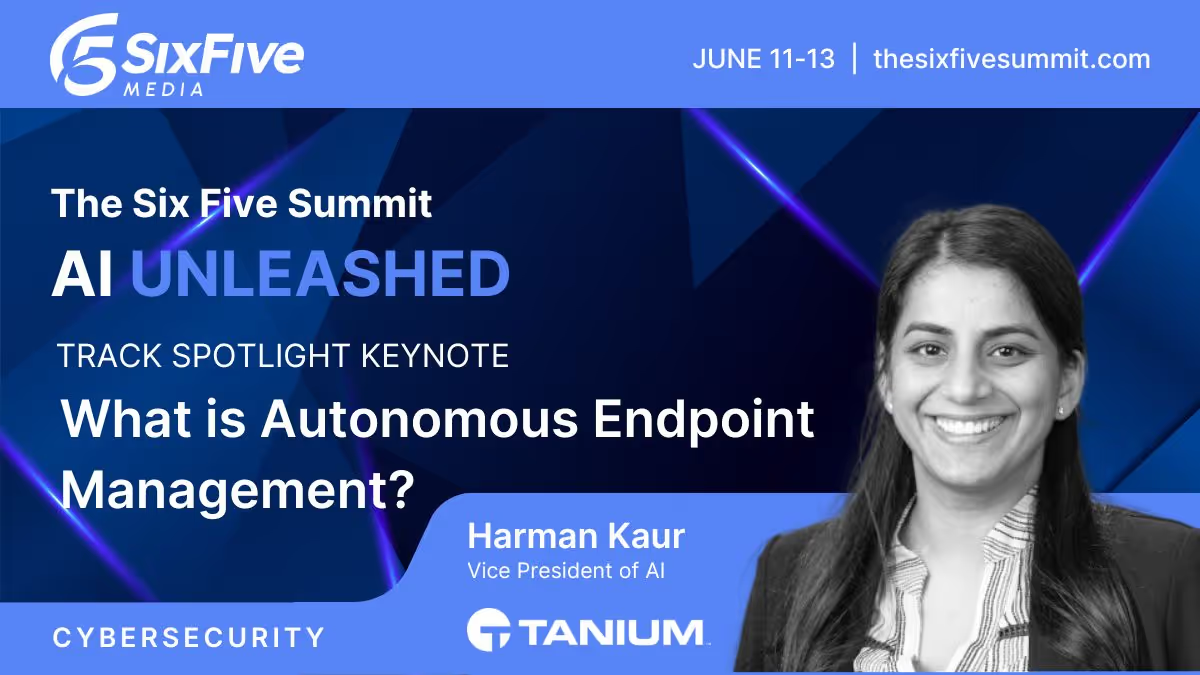Scaling Smarter: Empowering Partners to Deploy AI with Ease - Six Five On the Road
Kareem Yusuf, Ph.D. at IBM joins Tiffani Bova to discuss how IBM is enabling partners to deploy AI with ease, leveraging open ecosystems for innovation and growth.
The tech landscape is evolving at breakneck speed, and at IBM Think 2025, the message was clear: Organizations must adapt to thrive. ⚡
The Futurum Group Chief Strategy and Research Director, Tiffani Bova, sat down with Kareem Yusuf Ph.D, Senior Vice President, Ecosystem, Strategic Partners & Initiatives at IBM for a discussion on the critical choices facing the partner ecosystem today, and how IBM is supporting their partners through the transformative waves of AI technology. As AI continues to redefine enterprise landscapes, IBM is working strategically to help partners navigate and leverage these changes for growth and scalability.
Key takeaways include:
🔹The Rise of the Specialized Partner: IBM’s partners can no longer afford to be generalists. The conversation highlighted the increasing need for specialization and deep expertise in specific areas to deliver value in today's complex technological environment.
🔹AI as a Catalyst: The rapid advancement of AI is forcing partners to make strategic decisions about where to focus their efforts, whether it's in developing AI-powered solutions, providing AI-related services, or integrating AI into existing offerings.
🔹The Customer Imperative: The discussion underscored the importance of understanding customer needs and delivering solutions that address specific business problems, emphasizing the shift towards a more consultative and outcome-oriented sales approach.
🔹Embracing the Platform Era: Partners navigating the evolving platform landscape, leverage IBM's platforms and other technologies to build and deliver comprehensive solutions that meet the demands of the modern enterprise.
Learn more at IBM.
Watch the full video at Six Five Media, and be sure to subscribe to our YouTube channel, so you never miss an episode.
Or listen to the audio here:
Disclaimer: Six Five On the Road is for information and entertainment purposes only. Over the course of this webcast, we may talk about companies that are publicly traded, and we may even reference that fact and their equity share price, but please do not take anything that we say as a recommendation about what you should do with your investment dollars. We are not investment advisors, and we ask that you do not treat us as such.
Tiffani Bova: Hi everybody. Welcome to Six Five On The Road. I'm Tiffani Bova. I am here at Think 2025 in Boston, and I have the honor and pleasure to talk to Kareem today. And this is his first Think in this role, running ecosystems and channels and partnerships. I couldn't be more thrilled to have you. So welcome.
Kareem Yusuf Ph.D: Oh, thank you for having me.
Tiffani Bova: Well, listen, because it's your first, I'd love to just start with the transition from running software here for a number of years, you’ve been at IBM, obviously in multiple roles. What excited you about getting into the partner ecosystem and the alliances and how scale became on the ground more interesting to you?
Kareem Yusuf Ph.D: Well, you know, when you think about it, why do we build products? Right? Why am I even in this business at all? I've always loved the sense of applied technology, which means technology being used to do something, and a product is a way to manifest that. So when you then think about products being used means you have to get them in the hands of people. And for me, shifting over to work on the ecosystem, on fatigue partners, like you said, has been all about, how can I work now on the distribution of these products I've built and love so well.
Tiffani Bova: I always say, look, the best products in the world can sell themselves, and you can have the best products in the world sitting in some dark room and no one knows about them. Right. I mean, ultimately, as your team mentioned and your CEO on stage, as well as you yesterday, the word of the day was scale. Like, that was what it was about. And I think partners give you a unique opportunity to scale the business. But I would love to double click on how you define partnerships and channels, because, as you know, in preparation for our time together, we had a little bit of conversation, and I loved how you really dug into the different partner types in a very broad ecosystem.
Kareem Yusuf Ph.D: Well, I mean, to that point, what is an ecosystem? And, you know, I like to settle on the definition of it's a community, right? With a rich variety of participants working together harmoniously towards a mutually beneficial outcome. Now, if you take that as a structure in this context, that rich variety of participants are partners, right? And key to making an ecosystem work is understanding what each of those participants need and what their drivers are. So you decompose that and you begin to say, are they a VAD, you know, value added distributor, value added reseller, a service partner, an ISV, or a combination of one or more of those. And my job, I feel, is to harness those drivers, those needs, understand those individual types, and marshal that together in a harmonious way towards our business outcome, which is scaling our technology business.
Tiffani Bova: Well, each of those partner types are personas, right, they have different needs. And again, that's a very product centric view, right. It's like what is the persona of the user of the product? Well, what's the Persona of the partner I want to engage with?
Kareem Yusuf Ph.D: And no surprises there. I am a product manager to my core. I have been working in product management for way over 20 years at this point.
Tiffani Bova: And so we couldn't miss the opportunity to talk about AI. It's the hot topic of the day, whether it's Agentic, whether it's AI automation, performance, predictability. And do you think that there is a persona partner type that is best suited for this transition towards Agentic and towards AI?
Kareem Yusuf Ph.D: I think they all touch it in different ways. Let me unpack that a little because first of all, when I think about AI and I think about the impact of AI for business, I really think about it in the context of AI being embedded within the business processes. Right. And this manifests in today's language as agents, right. If you really think about it that way. So now the question becomes who's building these agents? So you've got the partner type, who's the ISV building agents within the application, leveraging our stack to do that. You know, we talked a lot about what's next Orchestrate and how we've provided agent builder tools and all that good fun stuff. You've got the service partner who might be implementing such solutions, but also often is also building other agents themselves. Especially as you think about agents that are helping to orchestrate other agents. Right. And of course, both of those personas end up in some shape, size or form, often being a reseller in the. All right. Or a seller. Right. So it all manifests through. But I would definitely say that if there was one partner type definitely touching it day in, day out, it will be the build partner, the ISV as they try to embed this technology, followed by the service partner as they deal with solution implementation.
Tiffani Bova: And I couldn't agree more. Where I have found historically within this ecosystem of varying personas is partners finding a way to work together has always remained challenging. I wonder if AI is going to be this catalyst that is going to help that build ISV work more closely with a SI kind of partner who may then work with a resale partner or work differently with a distributor partner. Right. Or a VAT or a VAR.
Kareem Yusuf Ph.D: Now I would counter though, if we go back and you know, we've all worked in technology for a while, back to the heydays of some in the early 2000s as we moved to the Internet, you know, the discussions of E Business, all of that. I think we saw that model then, right? You had the bit ERP implementations being linked together by middleware, right. That connects systems together. Databases came to the fore. And so you had a number of different partner types, I think from the ISV, the service partner, all that working together to set up what I would call IT infrastructure, IT fabric of the time. I think we're seeing that again, right? So we moved through that, then we jumped into the cloud and all of that. And so as you said, things may have gotten a little siloed, but you're right, we're seeing this kind of come back together again because environments are hybrids. Everybody has recognized that. So you're now thinking about how things flow across. Automation is key. Intelligent automation is where we really lead in. And that has become personified and embodied in the notion of the AI agent. So I see this kind of coming back together, but in some ways I see a lot of familiarity with the patterns of those early heydays as well.
Tiffani Bova: I think if we've been doing this for any point in time, the patterns always reshape, they show back up, right? It's kind of like Orchestrate being the new API, you know, is, you know, the new partner that is billed now that it's AI and maybe no code, low code, agentic building code. Like there is so much happening simultaneously and IBM has made a tremendous amount of announcements this week at Think. Is there anything that stands out to you that you hope that the channel really embraces the broader ecosystem and I know that the different personas within that, so maybe there's some clarity around each type. But is there something that you feel was launched that is look, if they can get this in their tool of tricks, right in their bag of tricks is a great tip of the spear to get into clients to start talking about how and where AI can really change the business.
Kareem Yusuf Ph.D: Look, I'll pick on three, which I think are really core and central and I may throw in a quick plus one. It goes without saying, Agentic AI. So what's the next Orchestrate set of announcements? I think if there's nothing else you take away from this, that's a bandwagon you've got to jump on because it is at the core and the heart of our AI strategy. Linked to that, I think for those who really understand it, a lot of good stuff is going on in the world of data. The WatsonX Data family of products with the addition of data integration and data intelligence and all that we're doing around data lakehouses speaks to core work that needs to be done to really power and enable AI. Often not thought about or spoken about enough when we get all caught up in what the agents are doing. And the third one I'd pick, I'm staying pretty much in the software realm for a minute is integration of applications. You mentioned APIs. These good old fashioned pathways are still the most critical thing in making it all happen. An agent has to invoke tools, and has to invoke other agents. That's being done via APIs over those frameworks. And so we announced the web methods hybrid integration offering that really is focused on seamless integration across hybrid cloud. I think that becomes another key one. And just not to leave out my infrastructure brethren, my plus one, that Linux one box. And the reason why servers, I mean Z17, the new mainframe, you know, those who know, know. But the reason why I think servers become even more interesting in an AI world is that these workloads have to run on something. We all seem to forget, I always like to joke that the cloud is a data center in a neighborhood near you, right? And so these servers have to be more and more optimized for performance, for energy consumption, for security technology to handle these challenging workloads in the most efficient and effective manner possible so that we can continue to scale. So definitely shout out to our infrastructure brethren. You're not left off on this particular Kareem hot list.
Tiffani Bova: Well, you know, I'm not surprised your first three were software oriented. I mean that's a given. No offense, right? But what this also highlights is that partners really have to understand, that ecosystem really has to understand how all this plays together. And very rarely outside of the very large partners in the ecosystem are going to be able to handle all that is required in many of the announcements that you've made. And a lot of the partners that are in the audience, and we're here this week in Boston, are your legacy hardware partners, right, that introduce software and then kind of started to lean into SaaS and cloud products when IBM started launching them. And now you're asking for one more leap, right? And for some of these partners, they've hung on to the ways in which they've done it historically over time. I'm going to guess you've had multiple conversations with some ecosystem partners this week. Not name wise, but did any really stand out like they get it or what they're missing in this conversation.
Kareem Yusuf Ph.D: I think you really, really nailed it though. Everybody's coming from different backgrounds. Right. I spoke with a partner who is totally at what I would call a new edge. SaaS only, small deals, land new client acquisitions, and which elements of the portfolio make sense for doing that. No interest in anything else. I met with a larger partner who's got a big business on both sides. Right. And you've got some who have honestly specialized in infrastructure and are looking at is there a crossover to software? But I think it's important. And would some of these partners think about this rightly? All too often, as with all things, we try to do it all. Or think of it, you know, you have to decompose the problem. I had an infrastructure partner say to me, I think my software entry point based upon what I'm doing with infrastructure is much more closely linked to the ideas around hardware optimization. Think turbonomic. Right. Software for stuff like that and FinOps. That's their pathway and I think it will work out very well for them. That's how they're going to go in with the attach. Then I can bring some of that software focused on essentially infrastructure automation and FinOps around that. That makes sense. They're not dabbling, they're not trying to go to pure AI. They'll take whatever AI is embedded in those products, but they're not going that way. I think that's sensible. So as a product guide, pragmatic approaches are key and central to how I think. And I think that's also going to be true for partners as they think about their transitions depending upon where they've started.
Tiffani Bova: I wonder if this will force people to specialize more. Like you gave two extremes, right? One extreme, very specialized, very deep and not wide.
Kareem Yusuf Ph.D: Yeah.
Tiffani Bova: Another partner was very wide and maybe deep in some things and less deep in others. I wonder if this is going to make people go, you know what? I see a future there. I'm going to ignore some of these other parts of the business that maybe I was chasing historically. And I'm going to land and expand around these new offerings that IBM has made this week.
Kareem Yusuf Ph.D: Look, I definitely met one who was making that call yesterday. Right. And I'm interested in more of that yield. I do think that there's a. If I don't use the word specialization as too strong, I would use the word focus. What are you going to major on? Right. I'm a big believer in majors and minors. In anything you do, you have to know what you're actually majoring in. And then you might minor in some other stuff that you kind of get as auxiliary halo effects around that major. And I do think to be credible in today's technology market, you do need to be able to major a little bit. Right. Because otherwise you don't know enough. They're not deep enough. And yea deep isn't cutting it in today's world.
Tiffani Bova: What a great challenge for the partner ecosystem this week at IBM Think. Thank you so much, Kareem Yusuf, for joining us. Thank you all for joining us here at Six Five On The Road in Boston. I'm Tiffani Bova. Don't forget to subscribe. Watch it on the YouTube channel. And we'll look forward to having you join us again soon.
MORE VIDEOS
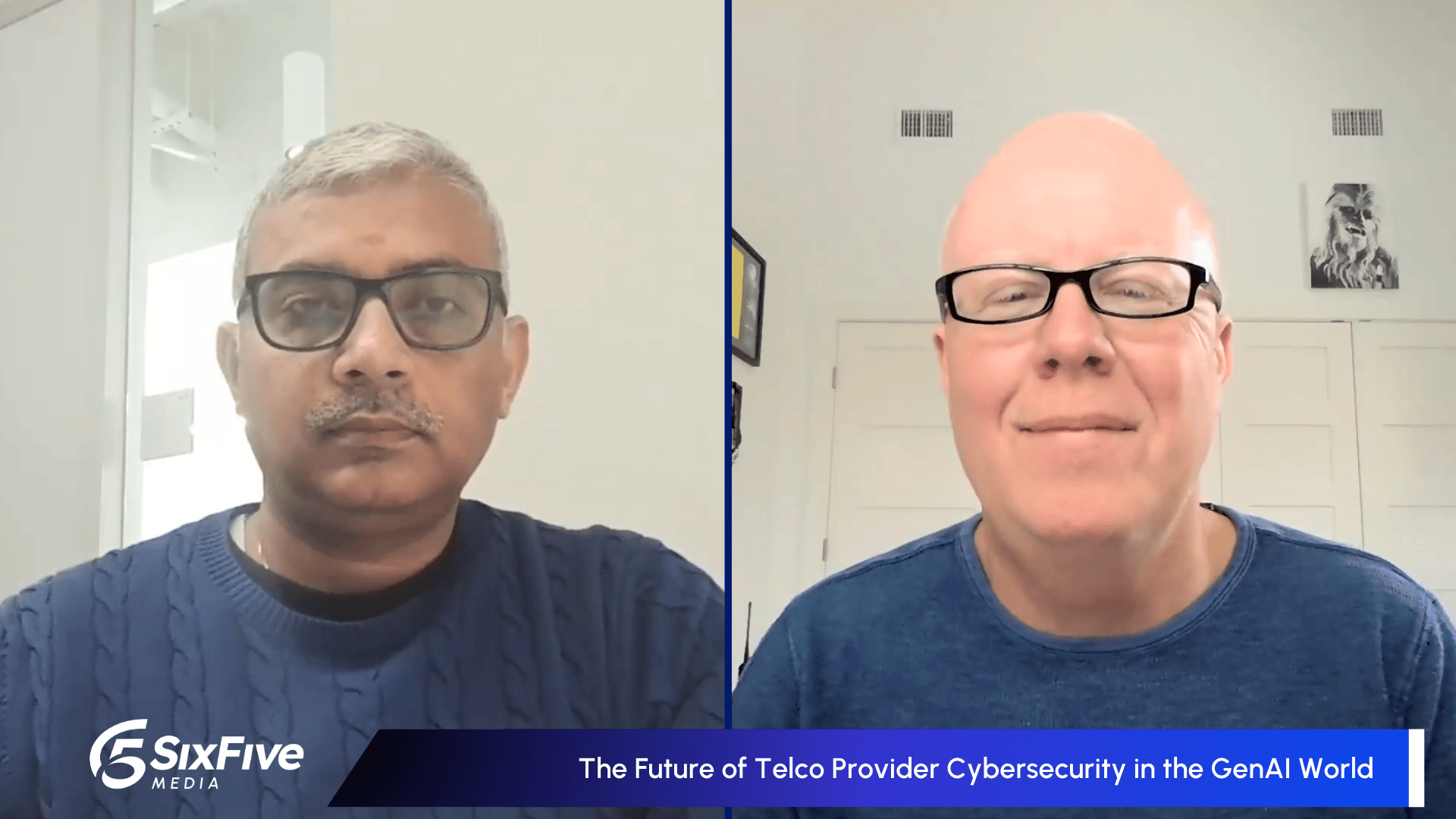
The Future of Telco Provider Cybersecurity in the GenAI World – Six Five Virtual Webcast
Dr. Srinivas Bhattiprolu, Head of Global Presales and Advanced Consulting Services at Nokia, joins host Will Townsend to explore how telco providers are evolving their cybersecurity practices in a GenAI world and addressing new threats.
Other Categories
CYBERSECURITY
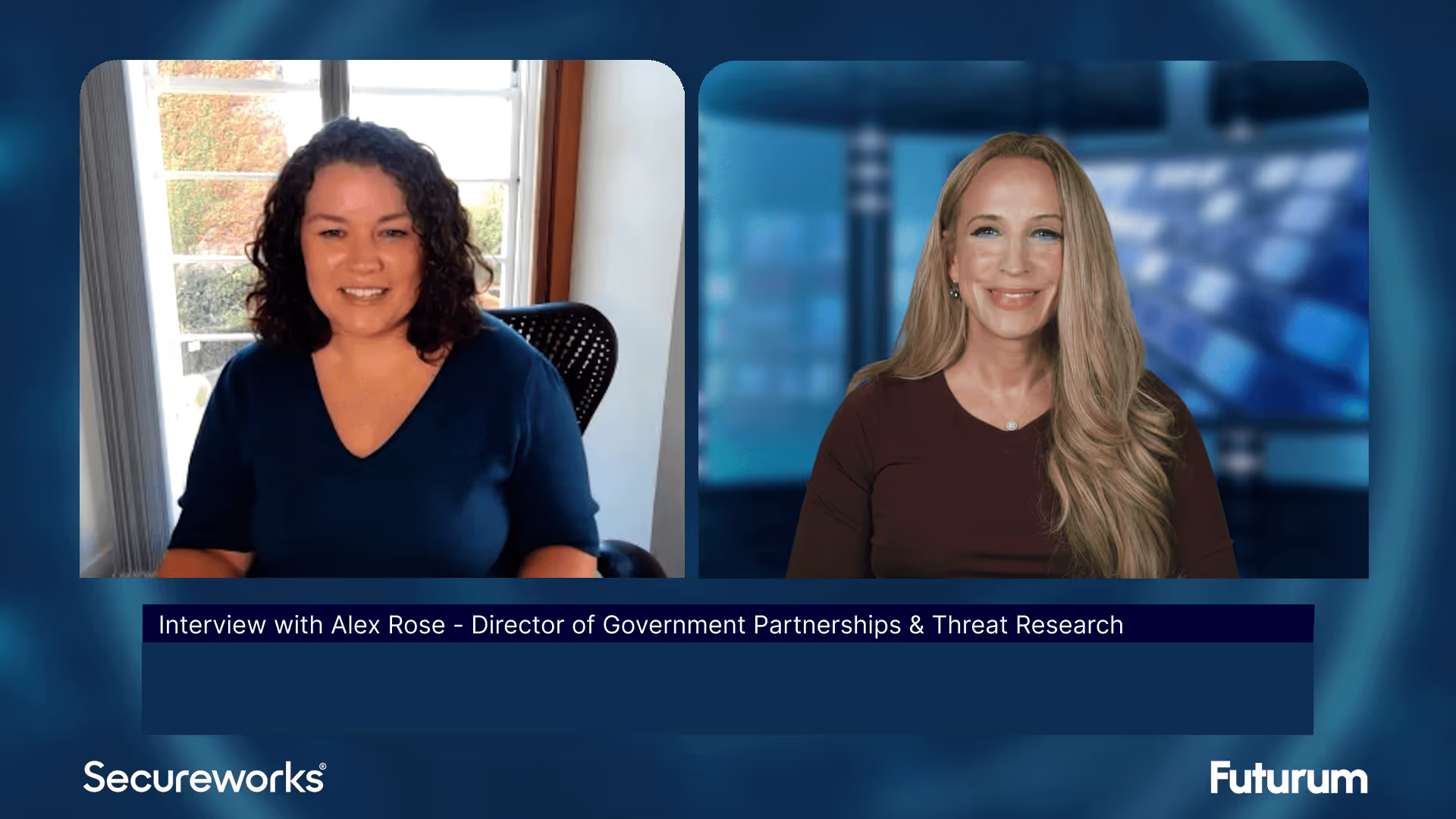
Threat Intelligence: Insights on Cybersecurity from Secureworks
Alex Rose from Secureworks joins Shira Rubinoff on the Cybersphere to share his insights on the critical role of threat intelligence in modern cybersecurity efforts, underscoring the importance of proactive, intelligence-driven defense mechanisms.
QUANTUM
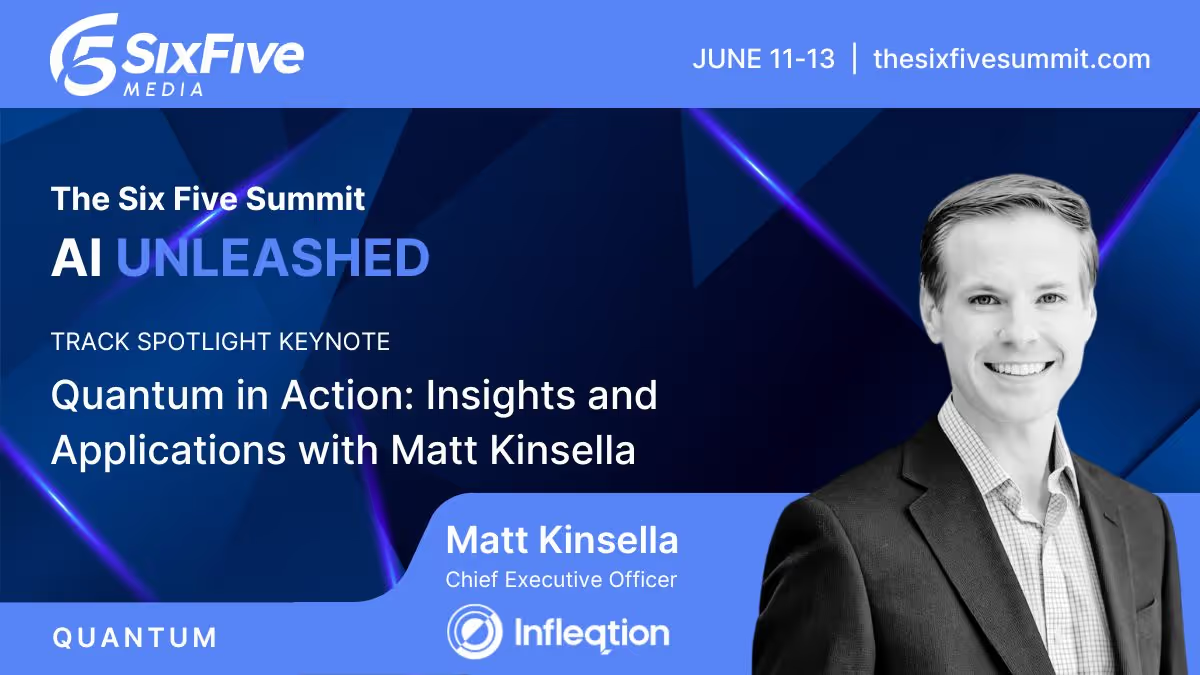
Quantum in Action: Insights and Applications with Matt Kinsella
Quantum is no longer a technology of the future; the quantum opportunity is here now. During this keynote conversation, Infleqtion CEO, Matt Kinsella will explore the latest quantum developments and how organizations can best leverage quantum to their advantage.
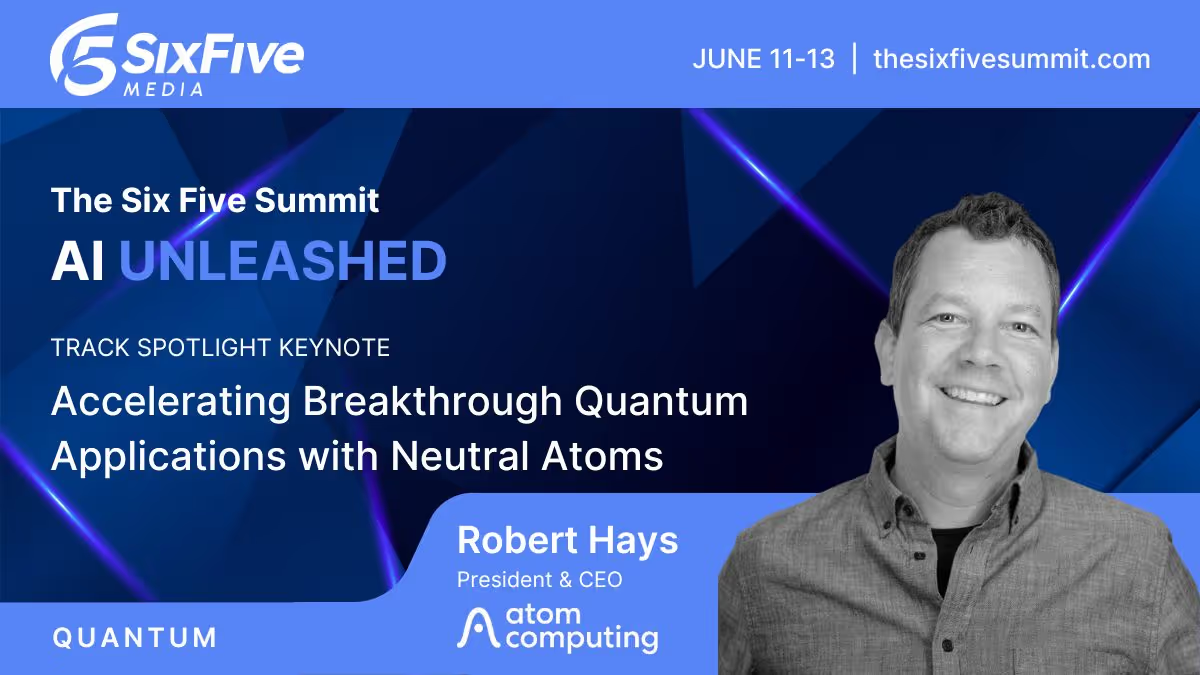
Accelerating Breakthrough Quantum Applications with Neutral Atoms
Our planet needs major breakthroughs for a more sustainable future and quantum computing promises to provide a path to new solutions in a variety of industry segments. This talk will explore what it takes for quantum computers to be able to solve these significant computational challenges, and will show that the timeline to addressing valuable applications may be sooner than previously thought.



